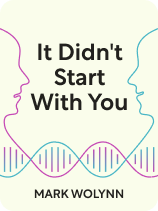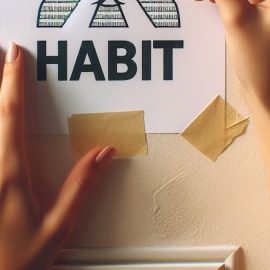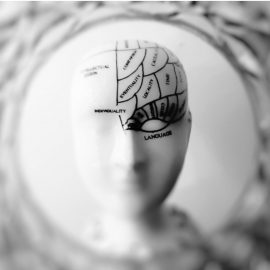

This article is an excerpt from the Shortform book guide to "It Didn't Start With You" by Mark Wolynn. Shortform has the world's best summaries and analyses of books you should be reading.
Like this article? Sign up for a free trial here .
Do you fight with your family all the time? Are we all traumatized in childhood, just to different degrees?
If you suffer from persistent anxiety, depression, or illness, you might be playing out trauma from your family’s past. According to trauma expert Mark Wolynn, there are four types of toxic family dynamics that can disrupt your ability to process and address childhood trauma.
Let’s look at the four toxic family dynamics that form the backdrop of people’s suffering.
Toxic Family Dynamics That Interfere With Happiness
Toxic family dynamics can initiate or continue a cycle of suffering in our families, according to Wolynn. Three of these relationship dynamics involve our parents, who play the most important role in our ability to adapt, form healthy relationships, and thrive.
Wolynn acknowledges that there are no known factors that definitively predict how relationship dynamics affect us. Yet he notes that factors such as birth order and gender can influence our mental health outcomes.
Relationship Dynamic #1: Unconsciously Taking Responsibility for and Repeating a Parent’s Trauma
The first of four family dynamics that are toxic is when your parents project their own trauma onto you. Wolynn says it’s common for us to internalize a parent’s trauma when they do this. Here’s an example: If your mom suffers from severe social anxiety while you are growing up, she may isolate herself. To alleviate her loneliness, you step in as her friend and confidant. Now, as an adult, you are repeating that dynamic with your son while still serving as caretaker for your mother. You resent your mother and feel guilty about imposing on your son.
Relationship Dynamic #2: Renouncing a Parent
Wolynn asserts that cutting ourselves off from parents who have caused us pain can give us the illusion of freedom, but doing so often blinds us to the ways we embody the very qualities in them we reject. Here’s an example: You cut ties with your father because he had an affair that led to your parents’ divorce. Now the unresolved pain and anger you directed at your father are surfacing in your life in unexpected ways—and you find yourself exhibiting the same qualities you rejected in him. You refuse to consider marriage, you are aloof with your partner who you love deeply, and—to your horror—you find yourself tempted to cheat on him.
(Shortform note: Research supports Wolynn’s assertion that parent-child relationship dynamics profoundly shape our lives, and that renouncing a parent can negatively impact your well-being. One study, for example, indicates that the psychological distance between family members influences our mental health outcomes. When relationships among mother, father, and children are all equal and close—what researchers consider “balanced”—children are less prone to anxiety and depression.)
Relationship Dynamic #3: Enduring a Disrupted Bond With Our Mother
One toxic family dynamic may involve your mother’s physical absence (due to work, illness, or travel, for example) or emotional unavailability (perhaps due to intense grief or mental illness). If this break happens while you are young, Wolynn asserts, it can have deep, lasting effects. You might unconsciously avoid getting close to anyone because that feels like a precursor to being hurt or abandoned again.
(Shortform note: As Wolynn notes, disrupted parent-child relationships are common. Research shows that 7% to 10% of people in the US have experienced parental rejection. Although what qualifies as parental affection and support varies across cultures, children respond to parental rejection in similar ways regardless of the cultural context—often through disobedience, bullying behaviors, and anxiety.)
Relationship Dynamic #4: Repeating the Patterns of a More Distant Relative
Wolynn says we may unconsciously take on behaviors and qualities of family members other than our parents. Here’s an example: You may unconsciously make choices that parallel a disgraced uncle who drank himself out of a high-paying job. You didn’t get fired, but you quit your job without a clear plan, and now you spend your days drinking alone.
(Shortform note: It’s unclear whether Wolynn believes that genetics play a role in this dynamic when it concerns a distant relative. While some studies indicate that trauma can change the expression of a person’s genes and that those altered genes can be passed to the next generation, it’s not clear whether and how we might inherit the trauma of a relative who’s not a direct ancestor.)
Wolynn contends that until we unearth and resolve these toxic family dynamics, we will continue to feel unsettled—and we will continue to unconsciously sabotage our freedom and happiness by projecting trauma from the past onto our current relationships.

———End of Preview———
Like what you just read? Read the rest of the world's best book summary and analysis of Mark Wolynn's "It Didn't Start With You" at Shortform .
Here's what you'll find in our full It Didn't Start With You summary :
- A look into the causes of persistent anxiety, depression, and illness
- How the traumas of your past are stopping you from being truly happy and free
- How to resolve deeply-rooted trauma by applying a unique therapeutic approach






